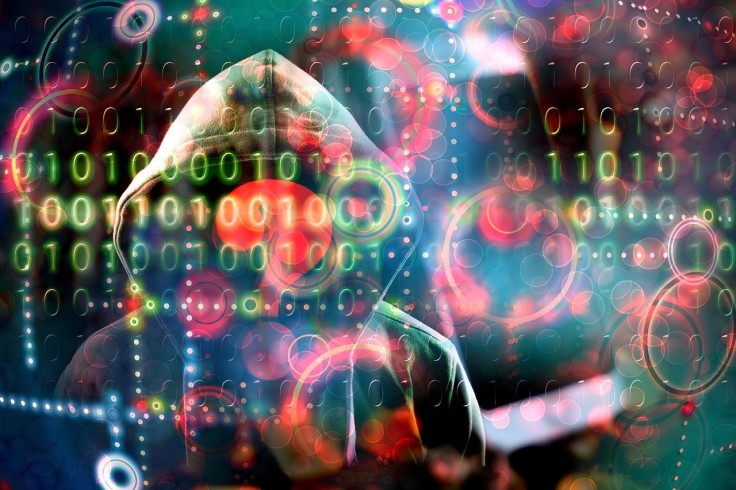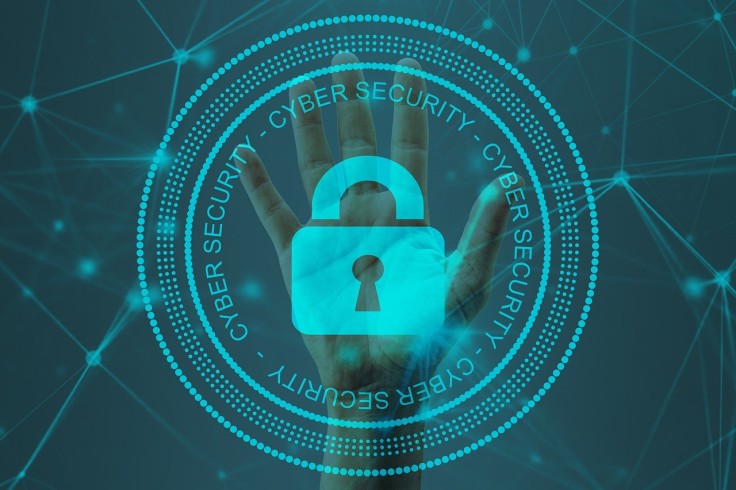
Cyber attacks happen to everyone, but there are precautions to help protect you and your data. When a cyber attack occurs, the information stored within your devices, network, or computer system is at risk of being compromised.
You may be afraid of cyber attacks against you or your business, but there are ways to prevent hackers from accessing your information and keep your data protected. To learn more about why cyber attacks happen, the problems they cause, and how to stay protected, keep reading.
What Is a Cyber Attack?
A cyber attack occurs when there is an intentional effort to steal, destroy, or expose data from a person or business. These attacks happen in a variety of ways, which makes it hard to protect yourself. From phishing scams to password breaches to malware attacks, the people inflicting these attacks often get creative.
"Everyone going into business today knows the necessary dangers of storing data on your devices and online. At this point, if you aren't actively taking the steps to protect yourself and your business, you're already at risk," explains Justin Soleimani, Co-Founder of Tumble.
To prevent cyber attacks, you need to be proactive. These attacks can happen at random or can be targeted, so it's important to understand why an attack may happen to you.
What Are the Top Causes of Cyber Attacks?
There are multiple causes for a cyber attack, but actively protecting your data helps you avoid the pain it creates regardless of the reason. However, knowing why you might be the target of an attack may help you decide where to focus your protective efforts.
1. Financial Gain
If you're a large company, it's easy to see why hackers may see a benefit from gaining access to your data and bank information. However, even small businesses have customer credit cards or bank information malicious actors may want to expose. Some hackers will shut down systems and hold them for ransom, only unlocking them and allowing a business back in when they pay a large fee.
"Customers trust the information they provide you is protected. Cybercriminals will find the weakest links and take advantage of the lack of protection. As a result, people's bank accounts are compromised, and in some cases, identities could be at risk of being stolen," says Raja Subramanian, GM of Power Wizard.
Money is a large motivator in cyber crimes because so much valuable information is stored in a business' data. If you're a business that holds this kind of sensitive information, you need to take responsibility for it.
2. Cyberwarfare
Cyber warfare is less common in business, but certain sectors may find themselves uniquely at risk. This kind of attack is often politically motivated and involves trying to acquire critical official documents or trying to undermine opponents in political races.
"Unfortunately, businesses that show their support for political affiliations and institutions can put themselves at a higher risk of cyberwarfare. While it's a personal choice, it has certain implications that leave your company vulnerable," says Maegan Griffin, Founder, CEO, and nurse practitioner at Skin Pharm.
You may not suspect cyberwarfare is happening to your business, so placing protective measures on your data will prevent leaks or hacks from happening.
3. Revenge
While many cyberattacks are random, there are instances where your business is specifically being targeted. For example, a disgruntled former employee or rival could decide to go after your business purposefully.
"One way to get ahead of any possible revenge scenarios is by treating everyone you work with well. In addition to this being a kind and wise business practice in general, it also helps prevent your business from experiencing potential retaliation," advises Jaedon Khubani, VP of Business Development at Copper Fit.
However, no matter how kind you are, you'll have to make some unpopular decisions as you run your business. If you know you're heading into a particularly difficult situation, be sure to fortify your defenses well ahead of time.
4. Lack of Protection
The easier it is for hackers to get ahold of your information, the more likely they are to try. If your company isn't keeping up with system updates or taking precautions to protect your data, you shouldn't be surprised when hackers come calling.
"It is self-evident that the impacts of a cyberattack go beyond IT. But, as our research shows, CEOs struggle to know how to lead their organizations' responses," says Rashmy Chatterjee, CEO of ISTARI.
Investing in customer data protection isn't an extraneous business cost—it's a priority. Ensure ] you're allocating resources to data protection to keep your business and your clients safe.
What Are the Consequences of Cyber Attacks?
Cyber attacks can lose your business money, customers, time, and data. It threatens security and trust among your customers and employees, and rebuilding trust is much more difficult than earning it in the first place. If you are a victim of a cyber attack, the damages aren't always immediately apparent—but they are wide-ranging.
1. Loss of Personal Information
When you have a breach of data or private information, you have to notify everyone who has information recorded in your system. Each person is put at risk of being impacted, and you might not be sure what kind of information was taken.
"The term personal information has so many meanings. When a cyber attack happens, anything from credit card info to bank account information, social security, home addresses, medical records, and beyond may be compromised," shares Christy Pyrz, Chief Marketing Officer of Paradigm Peptides.
If you are a business that needs to hold this kind of information, it is essential to use the proper systems of security to keep this information out of the wrong hands.
2. Money Loss
Cyber attacks often have a direct result on your banks and finances. Hackers can access that information and then wire money out of your accounts or spend large sums of money on various items—and while your bank may be able to help to some extent, there's no guarantee you'll be able to get that money back.
"Around the holidays, there is an uptick in hackers gaining access to credit card information and purchasing high quantities of gift cards. It's harder to trace once the cards have been purchased and might not show up as a suspicious activity right away," warns Greg Hannley, Founder and CEO of Soba Texas.
Money is one of the biggest motivators in cyber attacks, as there are many potential targets. As such, going directly for your finances is an unsurprising move.
3. Downtime with Work
A potentially less severe consequence of a cyber attack is the time spent away from working to solve the issues. If there are servers and networks involved in a cyber attack, you have to dedicate time to restoring everything and getting it running again.
"You may be surprised by how long it takes to reboot every employee's computer and re-download anti-virus and spyware. It sometimes takes weeks to ensure everyone's device is running safely after an attack, putting your company even further behind," says Ryan Rottman, Co-Founder and CEO of OSDB.
You have to factor in the time spent fixing the problem as well as the time spent enduring the attack. Cyber attacks have a long-lasting effect that requires energy and resources to solve.
How Can You Prevent Cyber Attacks?

You can't anticipate when a cyber attack is going to happen, but you can be several steps ahead of them. To keep sensitive data protected, you need to stay on top of your security and make sure all of your software is updated.
1. Education and Awareness
To prevent cyber attacks, you need to be well-educated on them. Hosting a cyber security seminar for your employees every few months reminds them to update software and be on the lookout for scams.
"One thing I've learned in the last couple of decades is security is an evolution, it never ends and that's because your adversaries are equally evolving," says Karim Toubba, CEO of LastPass.
Just as technology is improving, tactics used by cybercriminals are, too. There will be new challenges you face in regard to cyber security, but you must adapt to them and learn the ways to maintain protection.
2. Set-Up Multi-Factor Authentication
If your business uses secure log-ins to access private data, you need to implement multi-factor authentication. This will ensure whoever is trying to access an account is the right person.
"The beauty of multi-factor authentication is that it acts as a gate. Even if a hacker has the first piece of information, they will need to confirm their identity to make it through the second gate," explains Shaunak Amin, CEO and Co-Founder of SwagMagic.
Multi-factor authentication requires whoever is trying to log in to have access to either a personal phone number or email to enter a code. If a hacker can't access your phone number or email, this stops them in their tracks.
3. Use a VPN
A VPN is a virtual private network many businesses require their employees to use to protect data. This is a secure network you access with a log-in that allows you to use your personal computer for work in a safe and protected manner.
"VPNs make remote work less stressful on the employer. Employees won't connect to unsecured networks, and it saves all the information you need for work in one safe location," explains Datha Santomieri, Co-Founder and Vice-President of Steadily, a company that specializes in landlord insurance.
If your business has remote employees or simply wants to add a layer of protection against data breaches, a VPN is a great place to start.
4. Use Security Software
Keeping your security software updated is the best step you can take for your business's private data. You can download software onto your computers to add a layer of protection and make it more difficult for cyber attacks to infiltrate.
"The goal is to create as many barriers as possible," shares Andrew Chen, Chief Product Officer of CommentSold, a company known for their Shopify live selling services. "Hackers who can't get into your accounts will eventually move on and find a weaker system to hack into. Security measures wear them down!"
A system that hasn't been updated is a weak link that hackers will notice. If you are going to use them, you must be prepared to stay on top of them and keep them updated.
Don't Let Cyber Attacks Stop You!
While cyber attacks are scary, they don't happen every day—and they're much less likely when you put the proper protections in place to stop them. For your own personal information and for your business, keeping your data protected should be one of your top priorities.
Don't let a cyber attack throw you off course and negatively impact your business; stop cyber attacks before they even begin!









